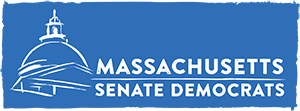Massachusetts schools put on high alert with latest college closure bill

Chris Lisinski / State House News Service / October 2nd, 2019
BOSTON — Colleges and universities in Massachusetts could face significant fines or lose their ability to issue degrees for failing to implement financial transparency measures under a bill the House unanimously approved on Wednesday.
Designed as a response to a recent wave of higher education closures, the legislation (H 4099) requires school leadership to post financial information online in a publicly accessible fashion, undergo regular budgetary screening, alert state officials if they face imminent closure and more.
The House advanced the bill 152-0 on Wednesday, two weeks after it cleared committee. Leaders of the Higher Education Committee described the changes as necessary to protect students, families and educators from the disruptions caused by school closures.
Rep. Jeff Roy, the committee’s House chair, said 18 colleges or universities in Massachusetts had closed or merged in the past five years, including Mount Ida College, which caught the state and many others off guard when it announced in April 2018 it would soon close.
“Last year, the students at Mount Ida College, were surprised to learn that their college was closing without any previous notification. Fifteen hundred students, including the daughter of one of my constituents, had their well-planned academic lives turned on their heads,” said Rep. James Arciero, the committee’s vice chair. “This legislation addresses that matter so that no other student will ever have to face a similar situation in the future.”
The legislation attempts to force schools to be more forthcoming about the financial situations they face and what impacts the public may soon experience.
While higher education remains a major and mostly stable industry in Massachusetts, officials have warned that smaller schools face an uncertain future because of competition, declining enrollment and rising costs.
“This is a trend that is likely to continue,” Roy told reporters before Wednesday’s session. “We have come up with a process that will allow this to be handled orderly.”
All colleges and universities would be required to alert the Board of Higher Education if they have any liabilities that create a risk of “imminent closure.” That information would remain private to allow struggling institutions to “get back on their feet,” Roy said, without alarming the public.
If the board determines that a school does indeed face closure, the institution would be required to create a contingency plan outlining how students can complete their programs, how student records would be maintained, how deposits would be refunded and more.
The board would subject colleges and universities to annual financial screening, and schools would need to post independent audit results on their websites in a publicly accessible fashion.
“This legislation supports and strengthens our higher education system and these vital engines of opportunity, and in so doing, protects the interests of students and families,” Roy said.
The bill requires board members at independent colleges and universities to undergo regular fiduciary and accreditation trainings at least once every four years. Boards at public schools would need to undergo a “comprehensive” Board of Higher Education training program, including information on public records, conflicts of interest, fraud prevention and more.
Education Secretary James Peyser said in May, while testifying in support of a Gov. Charlie Baker bill that helped inform the version the House approved Wednesday, that it is “not fair” for board members not to inform students and staff about risks of closure.
Schools that fail to comply with the proposed new requirements could be fined $1,000 per day, and the Board of Higher Education could also suspend state funding or revoke degree-granting authority.
The state Department of Higher Education has been drafting regulations related to monitoring for college closure risks, and Board of Higher Education Chairman Chris Gabrieli said last month that the bill advancing in the Legislature is “largely favorable and consistent with the authorities we need” for those regulations.
House members spoke with a sense of urgency about the need for safeguards outlined in the bill, but the bill has taken months to come together and Senate leaders have given no indication of when they’ll take it up.
The House and Senate plan to break from formal sessions for the rest of 2019 just before Thanksgiving.
